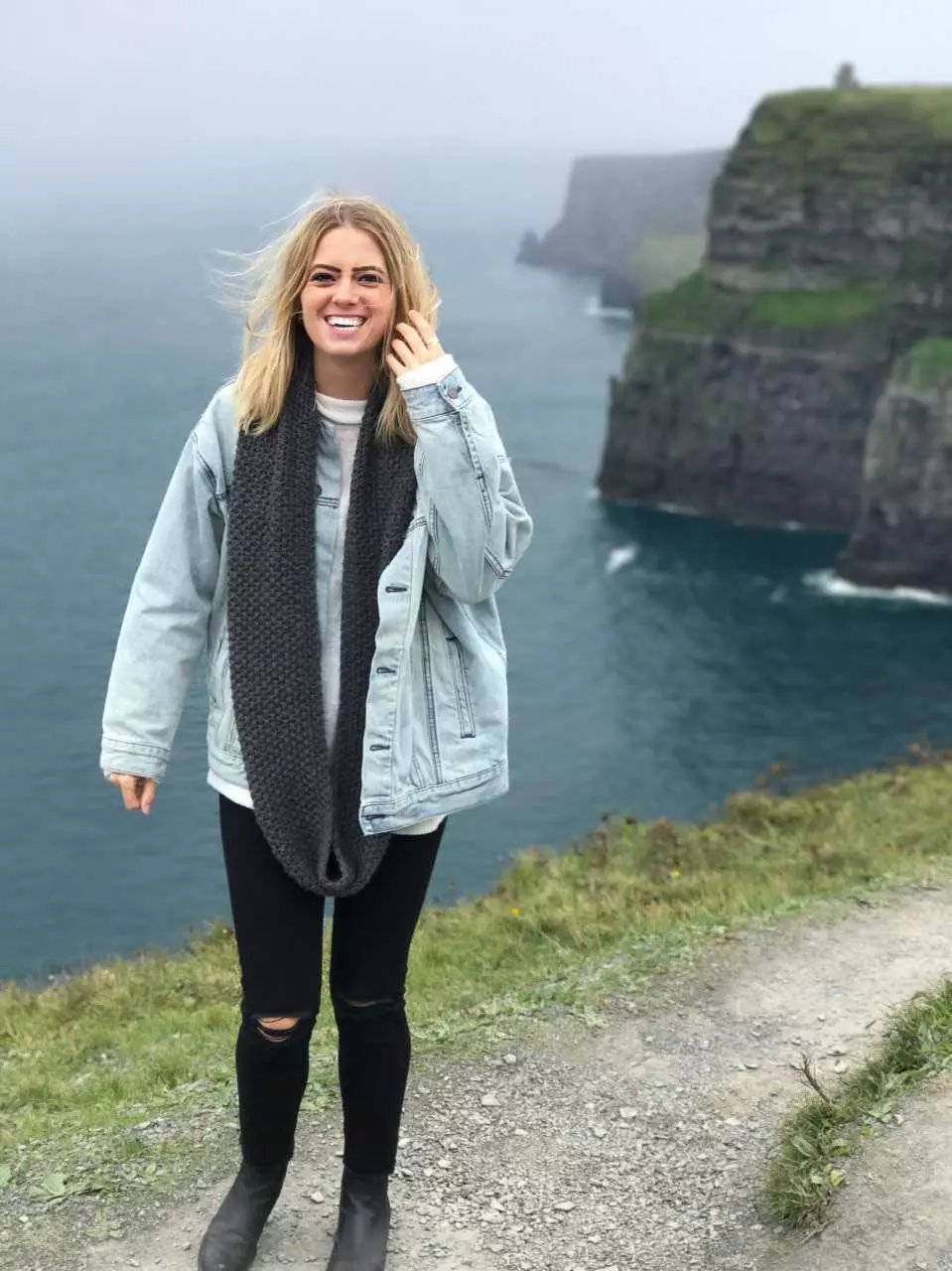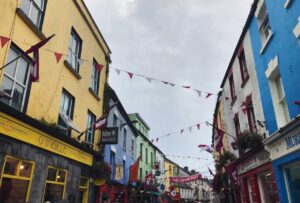Why Care About Self-Care?


New studies on how to live your best and healthiest life come out what seems like every minute, and it gets difficult to keep track of them all. Drink only raw, unpasteurized milk. Or, don’t drink milk, or consume any animal products whatsoever for that matter. Or, follow a strict gluten-free diet, except during the full moon and every other Sunday. Workout five times a week for an hour each day. Workout using HIIT methods for 10 minutes a day. Don’t workout, just meet daily step requirement! …and on and on and on until you feel as though you’re drowning in expertise opinions that confuse you more than advise you.
But here’s the catch: self-care means a million different things. It can mean a million different things to a single person, and that’s okay. My evolving understanding of what self-care meant to me was challenged by my decision to go abroad, from the day I made the decision, through the day I returned. Although my life has returned to some degree of normalcy since assimilating back to my home university, the lessons learned abroad about self-care are a reminder every day of the value studying abroad offers.

When I first got off the plane at Shannon Airport, I got both a chill of excitement and a physical chill. I had traded my beautiful summer weather in my hometown in Maine to a soaking rain with a high of 50 degrees in Galway. The preparation and travel time, not to mention the time difference, had me more exhausted than I’ve ever been before. My barely-open eyelids were not alert enough to scout out new friends. The nerves, jet-lag, and homesickness were my new trifecta. I tried to get myself to relax, but this proved difficult. I was lacking all the comforts and routines, and the comfort of routine, that I was so accustomed to at home. Not having things to ground you make the transition more difficult. As the jet lag wore off, and the nerves settled in, and the homesickness dulled, I was able to see the bigger picture. The learning curve that accompanies the transition to a new lifestyle is essential. Allowing yourself to adapt to a new environment takes time. Giving yourself this time is vital for assimilation, then flourishing. Being gentle to yourself during this time and incorporating self-care routines will aid this process to come along smoothly.
Although not an exhaustive list, I offer to you what kept me alive and well abroad. Without these acquired routines, my abroad experience would have lacked the stability I need as a person. Take my suggestions, make them your own, and incorporate them into your life abroad to ensure you take care of self-care.
Learn when to say no.
I knew before I even got to Ireland that studying abroad would be one of the best experiences of my life. I had been planning all summer for every trip I would take, all the restaurants in Galway I wanted to check out, and thought out every possible class I could take. When I arrived, I believed I had to say yes to everything in order to fully experience all that study abroad had to offer. This belief couldn’t have been more wrong. At my home university, I had lots of experience saying no. At home, my life is so thoroughly planned out that being spontaneous is not an option. “No, sorry, I have class.”“No, sorry, I have a meeting.”“No, sorry, those are my 20 minutes for lunch.”I knew what to expect for each day, and I knew that I couldn’t stray from these plans. I wanted to shake this up while I was at my host university and I thought that meant taking it to extremes. I thought I had to say yes to everything.Every opportunity to go out, every opportunity to go out to eat, every weekend trip my friends had been planning. Although this was new and exciting for the first few weeks, my health (and my wallet) could not keep up with this new trend of doing every. single. thing. Saying no to an opportunity does not mean you are not fully immersing yourself. Say no when you need to, without fear of missing out. I promise there will be plentyof opportunities to immerse yourself in your host country. Your sanity and your budget will thank you.
Use your resources.
One of the biggest resources you will have abroad is your connection to IFSA and the IFSA staff who are with you for the entire semester. My orientation leader and program coordinator was absolutely amazing. She provided so much insight to the best things to check out in Galway and helped everyone acclimate to their new home. She taught us Irish slang, shared the best places to eat, and was always there is we needed to talk to someone. These people are here to help you and getting to know them is so rewarding. Always feel comfortable approaching these individuals or asking IFSA for help if you need anything while abroad!
Set aside “me time”in an intimate and personalized way.
There was so much going on all around me. New friends, new school, new culture, new routine. My life in Galway was so different from my experience at my home university. These differences were neither for better or for worse, just different. I love my lives in both settings, but I had to find a way to adjust to all the newness. Absorbing the culture and falling into more spontaneous plans was exciting and fun, but overwhelming at times. I decided early on that I needed at least something consistent in my life that allowed me to catch my breath every day. I found this space to relax and unwind in the evening while making my dinner. It was both therapeutic and cost-effective. I often picked up groceries at the store on my walk back home from class for a recipe I looked up the night before. I settled in, started to play my favorite podcast, and began to relax. Meticulously cutting the vegetables, stirring the pot as necessary, and prepping the necessary garnishes. At the end of it, I had a meal to sit down and enjoy while catching up with my flatmates. Sometimes, I would even make extra so we could all share a meal together. This time was special for me and allowed me to take a step back after a crazy day and be able to ground myself. I recommend finding smoothing you love doing and do it every day so you have at least one thing to ground you and provide some consistency.
Only do things you really want to do and create your own experience.
When you’re in your host country or if you book a weekend getaway somewhere, it’s great to do a little research about the area you’re going to be visiting. Maybe there’s an amazing native dish you just have to try. Or maybe there’s a big sporting event the weekend you arrive. That said, experience what you want to experience rather than doing whatever Lonely Planet recommends under their ‘must-see’attractions. (No hate to Lonely Planet – they’re a great resource!) Focus on activities you find interesting and worthwhile, instead of feeling obligated to see every monument and museum. If art isn’t your thing, don’t feel like you need to go to the Van Gogh museum while you’re in Amsterdam. If you’re not crazy about architecture, then is the Notre Dame really anything more than just another church? Everywhere you go, create your own experience and don’t get trapped in the location’s most touristy attractions. Some of the most fun I have had in cities I’ve visited is by getting lost and exploring completely off the grid locations. With that being said…
Do things alone.
Don’t feel compelled to shape your experience based on the preferences or needs of others. It’s great to have friends while doing things, don’t get me wrong. Who else will split a humungous pretzel with you in Munich at Oktoberfest or capture that perfect ~candid~ picture of you while strutting city streets in Barcelona? However, take the time to do what you truly want to do. Doing things alone was a new experience to me and I totally loved it. Towards the end of my experience abroad, I booked an entirely solo, two-week trip to Italy and Eastern Europe. It’s good to do things that make you uncomfortable though! Ask for a table for one. Strike up a conversation with a stranger while on the metro. Bond and share stories with people you meet in hostels. Doing things alone allows you to really feel everything you’re doing, and introspectively view it all.
Stay off of social media (at least during the day).
Allow yourself to engage with the culture and environment instead of feeling compelled to document every aspect of it. Takes lots of pictures, of course, but don’t let that become a priority. Don’t get so caught up in trying to capture the moment that you end up losing it. I promise you, your Instagram feed can wait. How much do you really care about what your friends are posting on Snapchat? Social media is a great pastime and I’m an avid user myself, but getting off my phone was one of the best decisions I made. I did not have an international phone plan, which meant I only had access to internet while connected to wifi. Being able to have that barrier to my online life allowed me to fully immerse myself in the life I was actually living. What could be more exciting than that?
Cara M. | Providence College | National University of Ireland Galway in Galway, Ireland | 2017